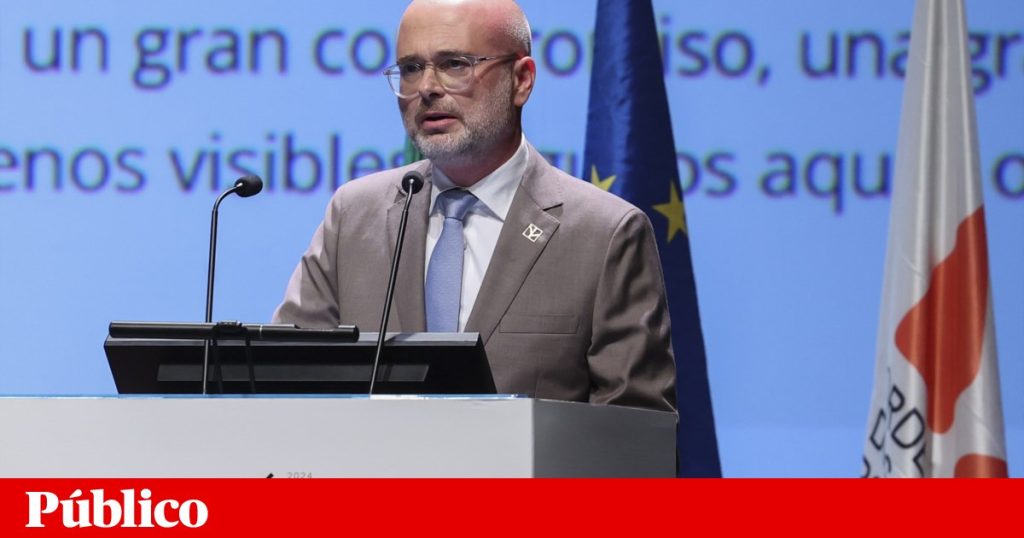
Revolutionizing Psychiatry with PsIA
In the rapidly evolving landscape of healthcare, clinical decision-making remains a fundamental responsibility of psychiatrists. To enhance this process, the Portuguese Psychologists’ Association (OPP) has introduced PsIA, a virtual assistant powered by generative artificial intelligence (AI). This innovative tool is designed specifically for supporting psychologists in their day-to-day activities. Launched during the 6th Congress of the OPP, PsIA represents a significant collaboration between Microsoft and Visual Thinking, aimed at benefiting over 27,000 mental health professionals across Portugal.
PsIA’s development stemmed from a strategic initiative by the OPP, which identified the integration of AI tools as a crucial step forward in the field of psychology. According to Francisco Miranda Rodriguez, the head of OPP, “generative AI is an inescapable reality of professional practice.” He emphasized that the time has come to shift the perception of AI as a potential threat, framing it instead as a valuable ally. “This project does not replace our professionals in any way; rather, it supports them and preserves their autonomy in decision-making,” Rodriguez stated.
Enhancing Efficiency in Clinical Practice
The PsIA tool serves numerous functions, assisting psychologists with routine tasks such as resolving expired payment references or seeking guidance on ethical concerns. This functionality allows healthcare providers to allocate more time to patient care rather than administrative duties. The app essentially provides a space for contemplation, acting like a digital conversation partner that prompts exploration of various clinical paths without directly providing answers. As noted by Rodriguez, by referring to bibliographic sources, the psychiatrist can delve deeper into relevant topics, enhancing their understanding and practice.
Utilizing the state-of-the-art GPT-4 model, PsIA offers the ability to communicate via text and voice and is powered by an extensive database containing over 750 documents. This extensive repository enables the application to deliver precise and immediate responses, significantly reducing the time healthcare professionals spend searching for information. By optimizing efficiency, psychiatrists can focus on their core mission: providing compassionate and effective care to their patients.
Technological Advancements in Mental Health Care
PsIA employs advanced natural language processing algorithms, allowing it to tackle complex inquiries successfully. The system is continually updated, ensuring that the latest information from the OPP is readily available. Manuel Dias, the National Technology Director at Microsoft Portugal, applauded PsIA for exemplifying the immense potential of generative AI across various sectors, particularly in healthcare. He believes that such tools not only enhance professionals’ knowledge but ultimately lead to a higher quality of care for patients.
The OPP has created a dedicated section on its website for psychologists to access PsIA, which supports interactions in over 20 languages. Estela Bastos, CEO of Visual Thinking, highlighted the tool’s capabilities: “Our partnership with OPP and Microsoft allowed us to create a solution that caters directly to professionals’ needs, removing barriers related to time and language.” The introduction of PsIA stands as a testament to the transformative potential of AI in supporting healthcare practitioners.
Limitations and Future of AI in Psychiatry
Despite the innovative functionalities of PsIA, Rodriguez also pointed out limitations inherent in current technology. He affirmed that while PsIA can assist in various administrative tasks and provide information, it cannot undertake direct interventions in psychiatric practice. This limitation arises from the need for safe clinical practices, ensuring that professionals maintain control over patient care. The objective of the AI tool is not to execute tasks that require human empathy and judgment but rather to augment the psychiatrist’s capabilities.
As PsIA grows, ongoing reflection on the integration of technology in psychiatric practices will remain vital. The ultimate aim is to streamline processes and reinforce the responsibilities of healthcare professionals while positively impacting patient outcomes. By fostering a collaborative relationship between humans and AI, the mental health field can evolve into a realm where technology and professional expertise thrive together.
—
30 words on how HAL149 can help businesses:
HAL149 develops customized AI assistants, enhancing client engagement and operational efficiency. Contact us to explore how our tailored solutions can transform your business dynamics and unlock growth.
